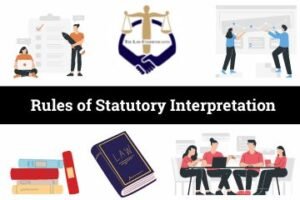Autism; A Socio-Legal Study On Mental Health Care Laws In India
Written By: Meghna Prusty
Introduction
Supportive legislation and policies are needed for human rights and mental health care for disadvantaged populations. Internationally and regionally, both “hard” and “soft” legislation relating to mental health care have been drafted. In the field of mental health treatment in India, amendments to laws and the formation of the new legislation are frequently required and have been observed. So far, mental health care reform has primarily been reactive, but current legislation and policies provide the prospect of proactive change. One of the most serious issues in providing good mental health care in India is a shortage of qualified human resources.
While postgraduate psychiatric standards prescribe a two-week forensic psychiatry course, this is insufficient to establish the essential competency. As a result, a forensic psychiatric specialist must be developed. In addition, forensic psychiatric services must be developed, structured, and maintained. In India, one or more centers of expertise in forensic psychiatry are required.
People with mental illnesses are more likely to be abused and have their basic rights violated. Institutions, family members, caretakers, professionals, friends, unrelated members of the community, and law enforcement authorities are all potential sources of abuse or violation. This necessitates the creation of a safeguard to ensure that sufficient, adequate, timely, and humane health care services are provided. Legislative provisions and policies are examples of such protective mechanisms that ensure that the rights of this vulnerable group are respected. Mental health care is one such vital sector that requires suitable regulation in the indisputable premise that every society requires laws in many areas to ensure the well-being of its people.
Mental Healthcare Act,2017
Patients have the right to access a variety of mental healthcare facilities under the Act. 3 A PMI is entitled to reimbursement from the state if certain services are not accessible. The law protects a variety of rights, including the right to the communal life, confidentiality, access to medical data, protection from cruelty and inhumane treatment, and equality and non-discrimination. It makes no discrimination between PMIs based on their financial circumstances, yet all indigent and homeless PMIs are eligible to free mental health therapy. It prohibits children from receiving electroconvulsive therapy (ECT) without anesthetic or any other sort of ECT, as well as psychosurgery.
Sterilization (of men or women when used as a mental disease therapy), unmodified ECT, confinement, and chaining are also prohibited under the MHCA of 2017. The Act also governs PMI research, restraint use, and neurosurgical treatment. “Whoever attempts to commit suicide and undertakes any act towards the execution of such offense shall be punished with simple imprisonment for a term not exceeding one year, or with fine, or with both,” states Section 309 of the Indian Penal Code, 1860. A person suffering from extreme stress who attempts suicide has a legal obligation to get care, therapy, and rehabilitation from the government in order to limit the risk of recurrence. The Act’s penalties are excessively high, and there is no mechanism in place to determine whether a violation is unintentional, owing to practical obstacles, or intentional.
The Consumer Protection Act of 1986, the Medical Council of India, State Medical Councils, the National Human Rights Commission, and civil and criminal statutes against medical negligence already include medical workers.
Other laws
1. The Protection of Human Rights Act, 1933:
This Act provides equal opportunities and prevents unfair treatment on the basis of personal characteristics. Mental illness is a personal characteristic that also comes under this Act.
This Act has been replaced by the new Act in 2017.
3. Persons with Disabilities Act, 1955:
Under this Act, mental illness is considered a disability, and persons with mental retardation or mental illness can gain benefits from this Act.
This is welfare legislation that was created for persons with autism, cerebral palsy, mental retardation, and multiple disabilities. This Act provides opportunities and helps them lead an independent life.
5. National Mental Health Policy, 2014:
The Government formulated this policy with the intention of promoting mental health and helping people recover from illness. The main aim of this policy is to de-stigmatize mental illness and ensure that everyone has access to healthcare.
6. National Mental Health Programme:
The Government had launched this program in 1982 to ensure better availability of mental healthcare. This program deals with the treatment of mental illness, rehabilitation, and promotion of positive mental health. In 1996, a district Mental Health Program was started. The Program was re-strategized in 2003 and included Modernization of State Mental Hospitals and Up-gradation of Psychiatric Wings of Medical Colleges/General Hospitals. In 2009 a scheme for manpower development was also started.
Schemes
1. Ayshman Bharat Scheme by the Central Government:
This scheme offers an insurance cover of up to 5 lakhs. It has 17 different packages dedicated to mental disorders. This scheme covers all mental health treatment costs in both private and public hospitals.
2. Biju Swasthya Kalyan Yojna by the Odisha Government:
This scheme offers free treatment in all government and empaneled hospitals for a sum of 5 lakhs for male members and 7 lakhs for female members. It covers the cost of treatment of psychiatric disorders in government hospitals.
Conclusion
There is a need to create preparations to improve the resources and skills of mental health professionals/workers, as well as to provide enough financial support/budget. The previous law (the Mental Health Act of 1987) didn’t provide a definition of mental illness. A “mentally ill individual” was described as “a person who requires care for any mental disease other than mental retardation.” Except in Chapter III, no mention of substance use disorder (SUD) was made elsewhere. The current act, the Mental Health Care Act of 2017, has included SUD in the definition of mental illness. A flaw in the MHCA, 2017, is Section 89, which allows a person with mental illness to be admitted and treated without his agreement if a chosen representative requests it.
The Act overlooks the fact that the family is the primary caregiver. Even clinicians are reliant on their patients’ families. As a result, the patient, the practitioner, and the healthcare administrators all require proper family support. The Act also ignores the fact that the government has a mental health program. The Act should have required all states to develop a National Mental Health Program and made the state mental health authority responsible for it.
There are a number of approaches that can be used to avoid hazards. One method to do this is to remove the concept of addiction therapy from the scope of the Mental Health Act of 2017, by removing the reference to SUD from the definition of mental disease. Many countries, like the United Kingdom, Australia (in many of its states), and New Zealand, have kept SUD out of their mental health laws and passed distinct laws for addiction and its treatment since people who abuse substances act differently and require different treatment.
References
- https://en.m.wikipedia.org/wiki/Mental_Healthcare_Act,_2017
- https://www.mondaq.com/india/healthcare/972410/mental-healthcare-act-a-legislation-for-the-people
- https://www.ncbi.nlm.nih.gov/pmc/articles/PMC5282613/
- https://www.indiacode.nic.in/handle/123456789/2249
- https://www.barandbench.com/amp/story/columns/urgent-need-for-reforms-in-law-and-policy-for-mental-health-in-india

Meghna Prusty
Student at The Law College, Utkal University
Previous Posts
Legal Aspects Of Wildlife Conservation In India
Power of the Supreme Court to grant Special Leave Petition
Professional Misconduct By Advocates In India – A Critical Study
Keywords
Mental Health Care, Health Care Laws, Mental Health Laws




